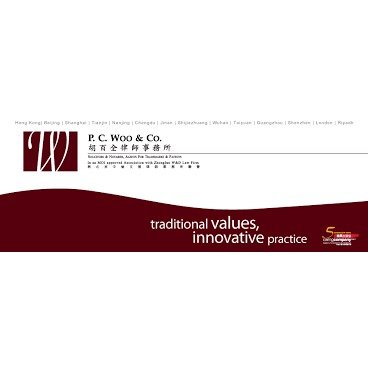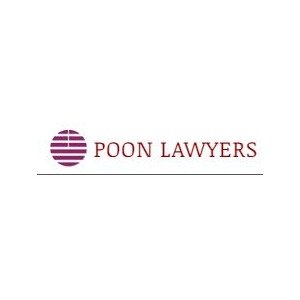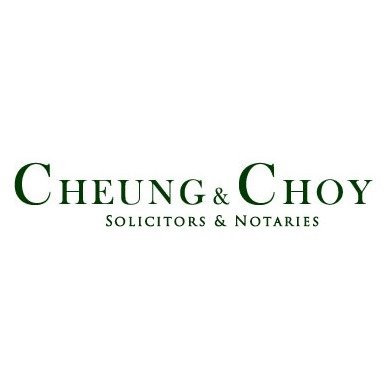Best Housing, Construction & Development Lawyers in Central
Share your needs with us, get contacted by law firms.
Free. Takes 2 min.
Free Guide to Hiring a Real Estate Lawyer
List of the best lawyers in Central, Hong Kong
About Housing, Construction & Development Law in Central, Hong Kong
Central, Hong Kong is a bustling hub known for its skyscrapers and vibrant real estate market. The housing, construction, and development sector is integral to the city’s economic vitality. This area of law encompasses regulations and legal standards concerning residential, commercial, and industrial development. It includes everything from acquiring land and planning permissions to ensuring building safety and compliance with environmental standards. Understanding the local laws is crucial for anyone involved in these sectors, be it developers, property investors, or residents.
Why You May Need a Lawyer
There are numerous scenarios where legal expertise may be necessary in the realm of housing, construction, and development:
- Property Disputes: Issues like boundary disputes, tenancy disagreements, or property damage might require legal intervention.
- Contractual Agreements: Drafting, negotiating, or reviewing contracts related to property sales, leases, and construction services is vital to protect your interests.
- Regulatory Compliance: Ensuring adherence to zoning laws, building codes, and environmental regulations necessitates a sound legal understanding.
- Development Approval: Navigating the process of securing necessary permits and approvals can be complex without legal guidance.
- Dispute Resolution: Discrepancies in project execution, delayed timelines, or financial disputes often require skilled mediation or litigation.
Local Laws Overview
The laws governing housing, construction, and development in Central, Hong Kong are multi-faceted and include:
- Building Ordinance: Defines the standards for the design, construction, and alteration of buildings to ensure safety and health.
- Town Planning Ordinance: Controls land use to ensure orderly planning and development of land resources.
- Land Registration Ordinance: Governs registration of land and property transactions, providing a public record of all rights and interests in property.
- Landlord and Tenant (Consolidation) Ordinance: Provides guidelines on rental properties, protecting both landlord and tenant rights.
- Environmental Impact Assessment Ordinance: Requires certain projects to undergo environmental impact assessments to prevent or minimize ecological damage.
Frequently Asked Questions
What is the process for obtaining a construction permit in Hong Kong?
Obtaining a construction permit involves submitting plans to the Buildings Department for approval. The process ensures compliance with building regulations and safety standards.
How can I resolve a dispute with a contractor?
Disputes with contractors can often be resolved through mediation or structured negotiations. If unresolved, litigation in the Small Claims Tribunal or District Court might be necessary.
What should I include in a tenancy agreement?
A comprehensive tenancy agreement should include terms relating to rent, security deposit, lease duration, maintenance responsibilities, and termination conditions.
How do I know if my property is in a zoned area?
You can check the zoning of your property through the Hong Kong Planning Department’s online zoning map or by consulting the Town Planning Ordinance documents.
What are my rights as a tenant if the building is sold?
Your lease remains in effect even if the building is sold, but you should be informed of the new landlord’s contact details and any changes that may occur.
What happens if I build without approval?
Unauthorized construction can lead to hefty fines, demolition orders, and legal action from the Buildings Department.
How are property taxes calculated in Hong Kong?
Property taxes in Hong Kong are generally based on the rental value of the property, assessed annually. Owners can check specifics with the Inland Revenue Department.
What is an environmental permit, and when is it required?
An environmental permit is necessary for projects listed under the Environmental Impact Assessment Ordinance to ensure minimal negative impact on the environment.
What can I do if a developer delays project completion?
If a developer delays a project, your contract usually contains provisions for penalties or conditions under which you can seek compensation or terminate the agreement.
How can I ensure my building complies with fire safety regulations?
Hire a registered contractor to conduct an assessment based on the Fire Services Department’s guidelines and check compliance with the Fire Safety (Buildings) Ordinance.
Additional Resources
For more assistance or information, consider reaching out to the following resources:
- Buildings Department: Oversees enforcement of construction and safety regulations.
- Hong Kong Housing Authority: Provides resources and assistance related to public housing.
- Hong Kong Institute of Surveyors: A professional body offering guidelines and expertise in property and land surveying.
- Consumer Council: Offers advice and assistance for resolving tenancy and property-related consumer issues.
- Environmental Protection Department: Guides projects requiring environmental assessments and permits.
Next Steps
If you require legal assistance in housing, construction, or development, consider the following steps:
- Identify the Issue: Clearly outline your legal issue, whether it is related to property disputes, contracts, regulatory compliance, or another area.
- Research Legal Firms: Look for legal professionals specializing in housing, construction, and development law in Hong Kong.
- Consult a Lawyer: Book a consultation to discuss your situation and hear their assessment and potential solutions.
- Review Options: Evaluate the proposed solutions and decide on the best course of action, whether it’s mediation, negotiation, or litigation.
- Act Promptly: Legal matters can be time-sensitive, so ensure you move swiftly to protect your rights and interests.
Lawzana helps you find the best lawyers and law firms in Central through a curated and pre-screened list of qualified legal professionals. Our platform offers rankings and detailed profiles of attorneys and law firms, allowing you to compare based on practice areas, including Housing, Construction & Development, experience, and client feedback.
Each profile includes a description of the firm's areas of practice, client reviews, team members and partners, year of establishment, spoken languages, office locations, contact information, social media presence, and any published articles or resources. Most firms on our platform speak English and are experienced in both local and international legal matters.
Get a quote from top-rated law firms in Central, Hong Kong — quickly, securely, and without unnecessary hassle.
Disclaimer:
The information provided on this page is for general informational purposes only and does not constitute legal advice. While we strive to ensure the accuracy and relevance of the content, legal information may change over time, and interpretations of the law can vary. You should always consult with a qualified legal professional for advice specific to your situation.
We disclaim all liability for actions taken or not taken based on the content of this page. If you believe any information is incorrect or outdated, please contact us, and we will review and update it where appropriate.
















